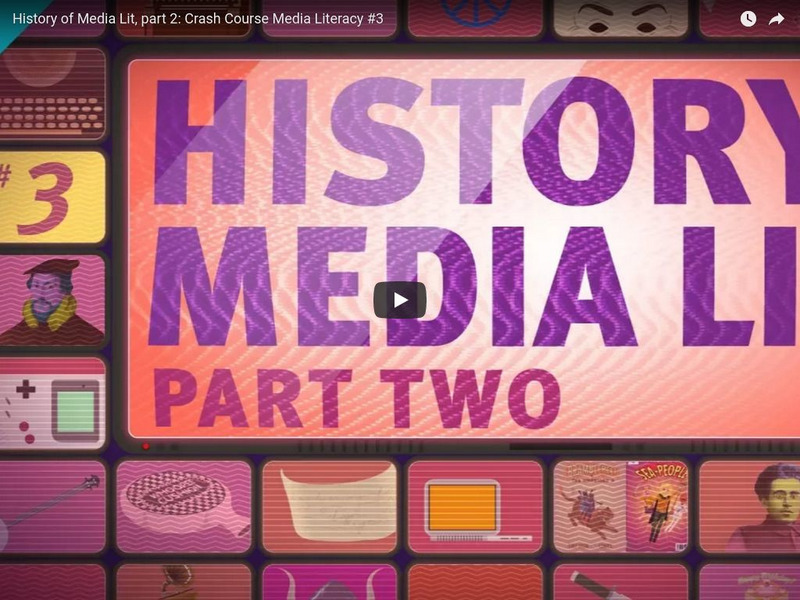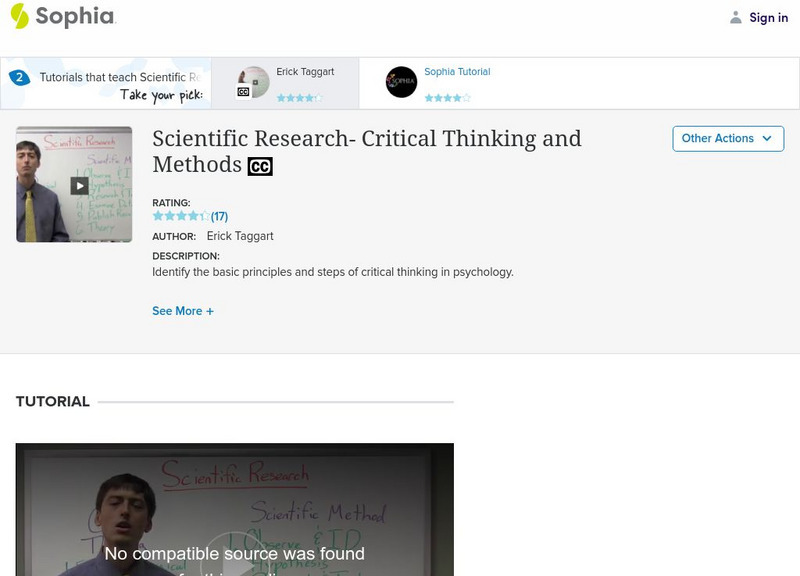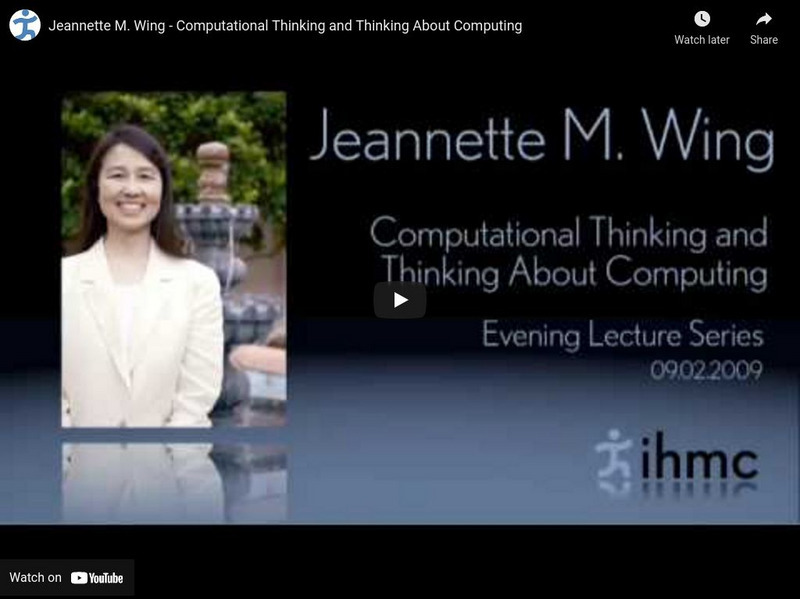Hi, what do you want to do?
Sesame Street
Kids Talk About Games
Games are the feature of this film. Children share their favorite games in this short clip. This could be used before a lesson on games.
Curated OER
Problem Solving Strategies
With a geometric shape on hand the instructor provides a reason for creative thinking then models how he constructs an answer using problem solving strategies. He explains his thinking and notes the strategy he used to solve each problem.
Khan Academy
Singapore Math: Grade 3a, Unit 1 (Part 7)
Third graders use zero, four, and five to make as many three-digit numbers as possible. Sal explains that to make the largest number possible, one must put the largest number in the highest place. Each step and Sal's thought process is...
Massachusetts Institute of Technology
Mit: Blossoms: Connections in the Plane Without Crossing
This lesson presents interesting and challenging problems in Graph Theory, supporting the skills that students learned at school and stimulating their critical thinking. The topics will include: basic properties of graphs; complete...
PBS
Pbs Learning Media: Defy Gravity! Centripetal Force
How can you keep a ball from falling out of a jar if the jar is upside down? Watch the ZOOM cast use centripetal force to meet this challenge. [2:54]
New Zealand Ministry of Education
Te Kete Ipurangi: The Thinking Competency
Lisa Smith explains how Rototuna School in New Zealand helps teachers develop rich understandings of the key competencies. This approach involves engaging with research, exploring personal experience, building a framework of the language...
Other
New Mexico State University: Science Pirates: The Curse of Brownbeard
Science Pirates is a 3D interactive video game that can be downloaded for free to a PC or a Mac computer. In the game, students must apply their scientific skills as they learn about food safety. It is intended for the middle school grades.
PBS
Pbs Learning Media: Encouraging Debate
Educators observe a video of argumentation and criticism within a senior pre-calculus class, facilitated by Chris Luzniak. Consider the questions provided following the video. Questions include observations made of the entire classroom,...
PBS
Pbs Learning Media: Common Core Mathematics: Differentiated Instruction
A video highlighting ways in which to integrate differentiated instruction while exercising argumentation and critique within math lessons. [3:07]
Sophia Learning
Sophia: What Are Empirical Questions?
Created to teach students of the 21st century, SOPHIA is bringing the concept of empirical questions straight to your fingertips within this interactive lesson. [13:36]
Crash Course
Crash Course Media Literacy #1: Introduction to Media Literacy
First thing's first: what is media literacy? In our first episode, Jay breaks this question down and explains how we're going to use it to explore our media-saturated world. Media literacy is the ability to access, analyze, evaluate,...
Crash Course
Crash Course Media Literacy #3: History of Media Literacy, Part 2
Jay continues our journey through the history of media literacy with the arrival of movies, television, and the other screens that now permeate our lives - along with some of the different approaches to media literacy that these...
Crash Course
Crash Course Media Literacy #4: Media and the Mind
You are constantly surrounded by media, so the question is: how does your brain handle all of that? The unfortunate answer is that our brains have a lot of processes that not super helpful for media literacy, but hopefully, with a little...
PBS
Pbs Learning Media: Gaining Catfish Aquaculture Skills
See how Mississippi high school students confront the uncertainty and untidiness of science and develop problem-solving strategies in the context of local catfish farming. [5:40]
PBS
Pbs Learning Media: Designing a Roller Coaster
In this video segment adapted from ZOOM, the cast is challenged to design and test a roller coaster with loops, hills, and U-turns. [4:21]
Sesame Street
Sesame Street: Positive Problem Solving
Positive problem solving is an essential factor to building resilience in our young children. Critical thinking, self-control, planning, persistence, and logical reasoning skills help kids solve problems and make appropriate decisions....
Khan Academy
Khan Academy: Fallacies: Ad Hominem
In this video, Paul Henne describes the ad hominem fallacy, which is an informal fallacy that arises when someone attacks the person making the argument rather than their argument. He also describes the four subtypes of this fallacy. [8:10]
Khan Academy
Khan Academy: Fundamentals: Correlation and Causation
In this Wireless Philosophy video, Paul Henne (Duke University) explains the difference between correlation and causation. [7:08]
Khan Academy
Khan Academy: Fundamentals: Abductive Arguments
In this video, Geoff Pynn follows up on his introduction to critical thinking by exploring how abductive arguments give us reason to believe their conclusions. Good abductive arguments don't guarantee their conclusions, but give us very...
New Zealand Ministry of Education
Te Kete Ipurangi: Thinking and Reading Comprehension
Julie Cowan from Willowbank School explains how she supports students to become strategic, reflective, and metacognitive readers and thinkers.
Sophia Learning
Sophia: Scientific Research Critical Thinking and Methods
This lesson will describe the role and four basic principles of critical thinking in psychology. The application and use of the experimental method and the six elements that make up the scientific method in psychology will be examined.
Code.org
Code Studio: Flappy Bird
In a few minutes, with Code.org's simple drag-and-drop tutorials students can make their own Flappy game from any web browser or tablet, and share it instantly with friends. [1:33]
Other
Ihmc: Computational Thinking and Thinking About Computing
Jeannette M. Wing, Assistant Director for Computer and Information Science and Engineering, discusses how, like reading writing and math, computational thinking skills will be a fundamental skill used by everyone in the world. [1:05:58]
Other
Learn to Program: You Can Code: Java vs C++
A discussion of the similarities and differences between Java and C++. The pros and cons of each language are demonstrated through example as well. [6:13]





















